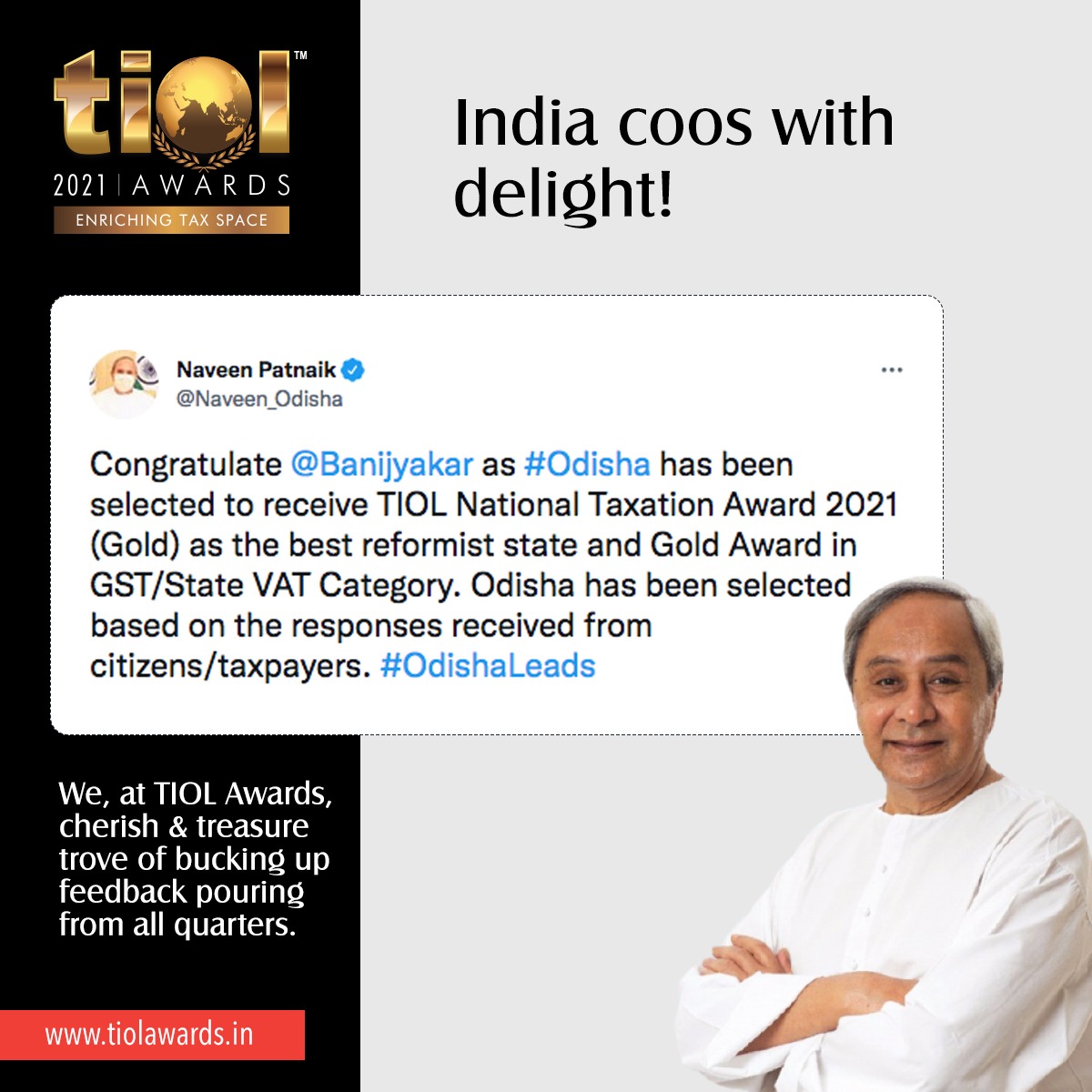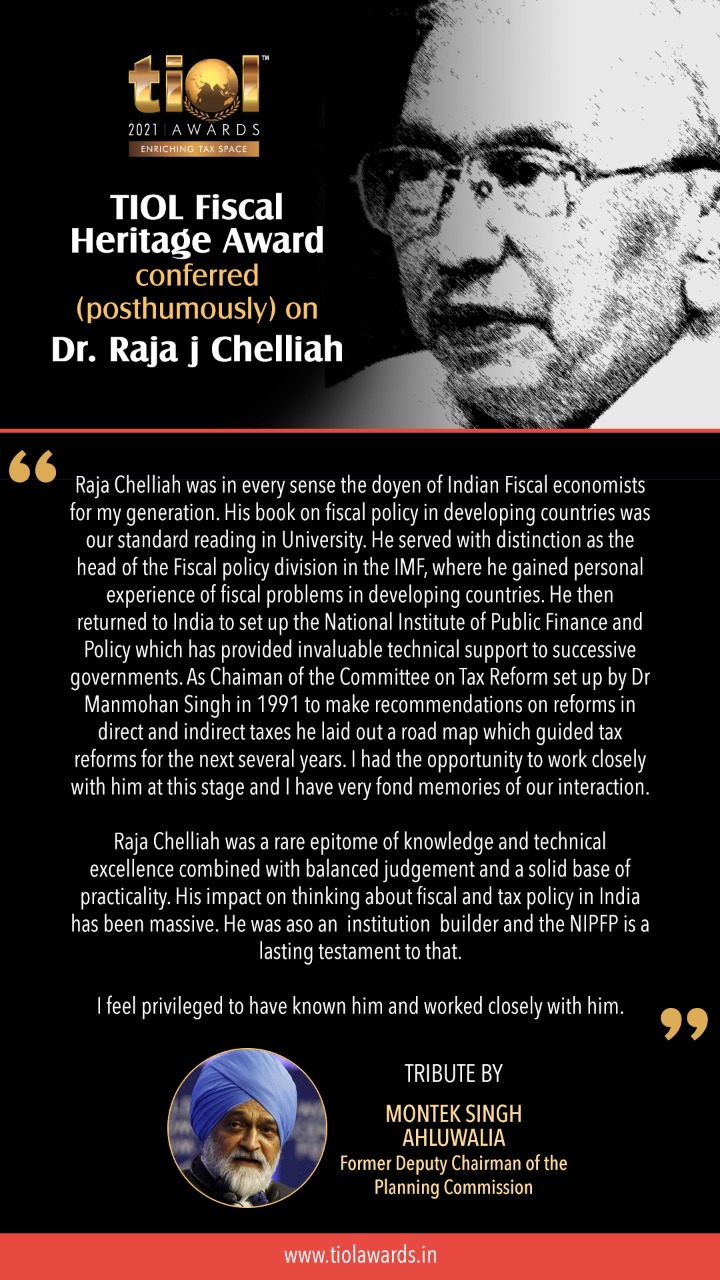|
2022-TIOL-302-HC-MAD-CX
National Oxygen Ltd Vs Pr.CGST & CE
CX - Appeal filed by assessee dismissed as time barred by the lower authorities, therefore, appeal before Court - Appellant submits that the Tribunal ought to have condoned the short delay in filing the appeal since not condoning the meagre delay would lead to miscarriage of justice.
Held: Issue involved is covered by a judgment of the Supreme Court in Hongo India Private Limited and another - 2008-TIOL-233-SC-CX - It is held therein that it is well settled law that it is the duty of the Court to respect the legislative intent and by giving liberal interpretation, limitation cannot be extended by invoking the provisions of Section 5 of the Limitation Act - Civil miscellaneous appeal stands dismissed: High Court [para 4, 5]
- Appeal dismissed: MADRAS HIGH COURT
2022-TIOL-186-CESTAT-DEL Pec Ltd Vs CST
ST - The accounts and other records maintained by appellant were audited and it was observed that the appellant did not pay/short paid service tax - So far the first issue of amount for banking and other financial services and Business Auxiliary services is concerned, appellant have received amount for financing charges in the nature of commission - From all the evidences and documents shown, it appears that, if said amount is actually by way of subsidy, same will not be exigible to service tax - However, for verification of this fact that the amount of subsidy has been wrongly booked under "Commission Income", matter remanded to Original Adjudicating Authority with directions to verify this claim, and thereafter, to pass a reasoned order in accordance with law - So far the amount in dispute towards 'erection, commissioning and installation services', from the evidences led before Tribunal, this appellant was only a 'consortium partner' for the sake of giving financial backing to M/s. Voltech Projects Pvt. Ltd., which is the 'leading party", and as per declarations in MOU and 'consortium agreement', role of appellant was limited to give financial backing to Project, and all the liability of execution of project and realisation of Profit & Loss arising thereunder, was on leading partner - Thus, this demand is set aside.
Further, as regard to the amount towards 'Business Auxiliary Services' received by appellant under RCM, such service, admittedly, has been rendered by service provider located outside India and have been received by appellant in India - The said taxability (under RCM) was highly debatable and was under litigation - The issue was finally decided by ruling of Bombay High Court in case of Indian National Shipowners Association 2008-TIOL-633-HC-MUM-ST , wherein it was held that an assessee is required to pay service tax under Reverse Charge Mechanism for the specified services, w.e.f. 18.04.2006 only, when Section 66 A was introduced in Finance Act - Appellant was entitled to cenvat credit on payment of such service tax under Reverse Charge Mechanism - Thus, there is no incentive for them to evade payment of tax - Accordingly, this service tax liability is upheld, but at the same time, penalty is also set aside: CESTAT
- Appeal partly allowed: DELHI CESTAT
2022-TIOL-185-CESTAT-MAD
Chettinad Cement Corporation Ltd Vs CGST & CE
CX - The issue is with regard to credit availed under category of 'capital goods' or items which were used for repair and maintenance of captive power plant intended for generation of electricity - Following the decision of Tribunal in appellant's own case for different periods, matter is remanded to adjudicating authority who is directed to conduct de novo adjudication and consider the eligibility of credit on the basis of principles laid down in said decision - Taking note of the fact that the issue is interpretational and appellant has not done any deliberate act to evade duty, penalty is set aside: CESTAT
- Appeal partly allowed: CHENNAI CESTAT
2022-TIOL-184-CESTAT-KOL
Pramod Kumar Dudi Vs CC
Cus - The issues that require consideration is, whether the seized goods can be said to have been smuggled from Myanmar, as held by Revenue - The appellant was intercepted at Imphal International Airport while he was carrying 21 gold biscuits with 'KTS' marking on 20 biscuits and 'MNOF0F0' marking on one biscuit, totally weighing 3486 gms - Out of the seized goods, appellant has claimed ownership of 2158 gms of gold in respect of which appellant has produced purchase invoices - The Adjudicating authority after having considered the documents produced by appellant has summarily held that the said documents were fabricated - However, no evidence found available on record to support the finding in adjudication order that the documents produced by appellant were fabricated - Had the Adjudicating authority suspected of such foul play, they could have easily examined the jewellers who had issued the invoices to appellant to establish the correct factual position - Therefore, appellant has produced sufficient evidence in support of its claim for ownership of 2158 gms of seized goods - Appellant cannot be made to suffer for lapses on the part of Adjudicating authority - Although there have been certain inconsistencies in submissions made on behalf of appellant, Adjudicating authority has failed to satisfy that the seized goods were goods brought from a place outside India, and therefore, the provisions under Section 111 of Customs Act cannot be invoked - Further, appellant has duly discharged the burden of proof under Section 123 of Customs Act, 1962 - Accordingly, impugned order is set aside: CESTAT
- Appeal allowed: KOLKATA CESTAT
2022-TIOL-183-CESTAT-KOL
Beriwala Impex Pvt Ltd Vs CC
Cus - The assessee-company imported LDPE re-processed granules through Chennai and Kolkata ports and ICD Tughlakabad which were assessed by the proper officers and cleared for home consumption - The DRI received information that the appellant had been resorting to undervaluation of the LDPE granules which resulted in short levy of duty and conducted searches, recorded statements and after completing investigation, came to the conclusion that the appellant had undervalued the imported goods - The Additional Director General, DRI, issued SCN proposing recovery of differential duty u/s 28 along with interest and imposition of penalties - On adjudication, the duty demand came to be confirmed - The case was decided w.r.t. all imports made through three ports - The O-i-O in question was challenged on several grounds - A miscellaneous application was filed seeking permission to raise an additional ground that the SCN was issued without authority because DRI officers were not proper officers to issue a demand under section 28 in view of the judgment of Supreme Court in the case Canon India.
Held - The Section 28(11) of the Customs Act cannot sustain the SCN issued in this case by DRI officers since DRI officers have not been entrusted the functions under the Customs Act by the Government under section 6 and hence cannot perform such functions & the SCN in this case was not issued by 'the proper officer', i.e., the officer who had assessed the Bills of Entry in the first place - SCN and consequent O-i-O are quashed: CESTAT
+ Thus, even if there are more than one proper officer by virtue of section 28(11), the demand can be raised only by 'the proper officer' i.e., one who assessed the Bills of Entry in the first place or his successor in office and not by any other proper officer. In this case, since the Bills of Entry were not assessed by the officers of DRI, the SCN issued under Section 28 is without authority even if section 28(11) is considered. Thus section 28(11) does not carry the case of Revenue any further. Further, the law laid down in Canon India further followed in Suncity Strips (supra) is that in the absence of entrustment of functions to DRI by the Government under Section 6, not only the Show Cause Notices issued by DRI but also any functions performed by the DRI officers under the Customs Act are vitiated. Thus, any other functions under the Act (for example, searches, seizures, arrests, recording of statements) by the officers of DRI also get vitiated because no functions have been entrusted to them under Section 6 by the Government. Evidently, in this case, the SCN itself is the culmination of investigation which involved several functions by the DRI under the Customs Act. Even on this ground, the impugned order cannot be sustained. (Para 24);
+ If the Finance Bill becomes the Act, DRI officers will be at par with Customs officers under the Customs Act by virtue of the substitution of section 3 and their various actions such as searches, seizures, arrests may not become void because of non-entrustment of those functions by the Government under Section 6. However, there is no proposal to amend section 28 and hence SCNs can be issued even after this Bill becomes the Act only by 'the proper officer', i.e., the officer who has done the assessment in the first place. In fact, this specific legal position as held by the Supreme Court in Canon India is likely to be reaffirmed by insertion of section 110AA in the Act. It would not be out of place to mention that the nature of powers under section 11A of the Central Excise Act and Section 73 of the Finance Act, 1994 are similar to the power under Section 28 of the Customs Act. However, this power has been conferred on 'the proper officer' under the Customs Act and on 'the Central Excise officer' in the other two Acts and this dissimilarity implies that the Central Excise officer need not be 'proper officer' but the similarity lies in the use of the definite article 'the' instead of 'a' or 'any' or 'any of the', etc. The meaning of the definite article 'the' when used in any law was explained by the Supreme Court in Consolidated Coffee Ltd. and others vs Coffee Board, Bangalore (Para 26);
+ Thus, the settled legal position is that when the legislature uses the definite article 'the' it refers to a particular thing or particular person. This brings certitude as to who can issue a Show Cause Notice to demand duty or tax not levied short levied, not paid, short paid, etc. in all these three Acts viz., Customs Act, Central Excise Act, and the Finance Act, 1994. We also find legislature has also used definite article in subsequent enactments. In the Central Goods and Services Tax Act, 2017 (CGST Act) section 73 deals with demands other than cases of fraud, wilful mis-statement or suppression of facts while section 74 deals with cases where these elements are present. In both sections, the notice can be issued by 'the proper officer'. These provisions of CGST Act, 2017 are also made applicable to Inter-state Goods and Services Tax Act. Similar provisions are also there in the State Goods and Services Tax Acts of various states. Section 156 of the Income Tax Act, 1961 also gives the power of issuing notice of demand on the assessing officer. What is common in these provisions of various enactments is that the power to issue notice demanding tax or duty is always conferred on a particular officer which legislative intent is clarified by using definite article 'the' instead of 'a' or 'any' or 'any of the'. The proposed Section 110AA in the Finance Bill 2022 is also consistent with the legislature conferring the powers of raising a demand on only one officer. (Para 27)
- Appeal allowed: KOLKATA CESTAT |
|





